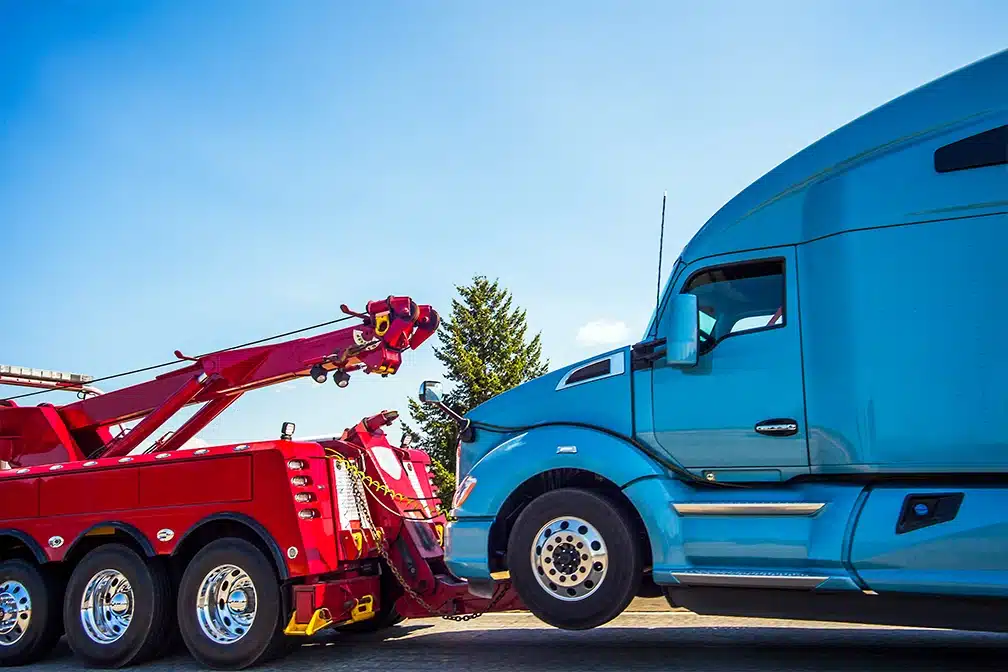July 27, 2024 5:47 am
BRINGING THE AMERICAN TRUCK DRIVER THE LATEST TRUCK DRIVER NEWS
Predatory Towing Practices: New Tennessee Law Shields Truckers
In response to high-profile incidents, Tennessee recently enacted a new law aimed at predatory towing practices, particularly those targeting heavy-duty trucks.

Tennessee has recently enacted a new law aimed at curbing predatory towing practices, particularly those targeting heavy-duty trucks. This legislation comes as a response to a series of high-profile incidents and a significant lawsuit against a Memphis towing company, which drew national attention to the issue. The new law, SB1692/HB1731, has been praised by the American Trucking Associations (ATA) and various trucking companies as a much-needed reform to protect truck drivers and their vehicles.
Predatory Towing in Memphis: A Hotspot for Illegal Practices
Memphis has been a notorious hotspot for illegal towing practices. Predatory towing involves incidents where towing operators severely overcharge, illegally seize assets, damage assets through improper equipment use, or illegitimately withhold the release of a truck, trailer, and/or cargo. Truck drivers in Memphis have faced numerous challenges due to these practices. One notable incident involved a trucker who was prevented from paying a $275 booting fee, resulting in her company paying thousands of dollars to retrieve the vehicle. Another trucker was booted and blocked in while attempting to pay for parking, forcing him to wait in his truck for over 33 hours to prevent it from being towed.
The New Law: Key Provisions and Protections
The new law, championed by Senate Majority Leader Jack Johnson and Representative Jake McCalmon, was developed with input from the Tennessee Trucking Association. It includes several critical provisions to protect truck drivers:
- Prohibition of Unlicensed Booting: Unlicensed individuals are now prohibited from booting vehicles anywhere in Tennessee.
- Commercial Lot Restrictions: Booting is limited to commercial lots only, and a licensed parking attendant must be present, identifiable, and available to remove the boot within 45 minutes of being contacted.
- Fee Cap: The fee to remove a boot is capped at $75.
- Vehicle Identification: It is illegal to boot or immobilize any truck or trailer clearly identified as a commercial vehicle with a USDOT number or a commercial license plate.
- Notification Requirements: Towing companies must properly notify vehicle owners if their vehicle is towed, sold, or demolished. The law also directs the Department of Revenue to create a motor vehicle portal for public notifications of unclaimed vehicle sales, accessible by law enforcement, towing companies, vehicle owners, and lien holders by July 2025.
Impact on the Trucking Industry
The trucking industry has welcomed this legislation, seeing it as a significant step toward eliminating predatory practices. ATA President and CEO Chris Spear emphasized that predatory towing companies have long taken advantage of the trucking industry, tarnishing the reputation of the entire towing sector. Spear stated, “We refuse to continue making these ransom payments any longer.”
Fenn Church, owner of Church Transportation in Birmingham, Alabama, experienced firsthand the impact of predatory towing when two of his trucks were illegally booted and towed in Memphis, costing him nearly $18,000 to retrieve them. Church praised the new law and expressed gratitude for the media coverage that highlighted this critical issue.
Background: The Legal Battle Against Predatory Towing Practices
The need for this new law became evident through various high-profile incidents and legal battles. Three trucking companies—Western Express Inc., MHT Group Inc., and Church Transportation and Logistics—filed a $5 million racketeering lawsuit against a Memphis towing company, accusing it of predatory practices in violation of federal anti-racketeering laws (RICO).
The lawsuit alleged that the defendants engaged in conspiratorial enterprises to illegally harass, intimidate, and extort commercial truck drivers. Specific incidents detailed in the lawsuit include truck drivers being trapped, intimidated, and forced to pay exorbitant fees to retrieve their vehicles. The Memphis Transportation Commission eventually suspended the towing permit of A-1’s Towing, one of the companies involved, for 30 days.
Moving Forward: Ensuring Fair Practices
The new Tennessee law aims to create a fairer environment for truck drivers. The law is meant to ensure that truckers are not subjected to the whims of dishonest towing companies. It is part of a broader trend, with states like Mississippi and Florida also passing legislation to target predatory towers.
Donna England, President & CEO of the Tennessee Trucking Association, highlighted the importance of this legislation, noting that it addresses unfair tactics that disrupt the state’s supply chain and cost truck owners thousands of dollars. England expressed gratitude to Tennessee legislators and Governor Lee for their swift action in signing the bill into law.
Looking Ahead
The enactment of Tennessee’s new law against predatory towing marks a significant victory for truck drivers and the trucking industry. By setting clear regulations and protections, the law aims to prevent the abusive practices that have plagued truckers in Memphis and beyond. As the law takes effect on July 1, 2024, it represents a crucial step towards ensuring that truck drivers can operate without fear of predatory towing, ultimately supporting the vital role they play in the economy.
Read more about House Bill 1731, aka Modernization of Towing, Immobilization and Oversight Normalization (MOTION) Act
Recent Posts
Copyright 2024. All Rights Reserved.
